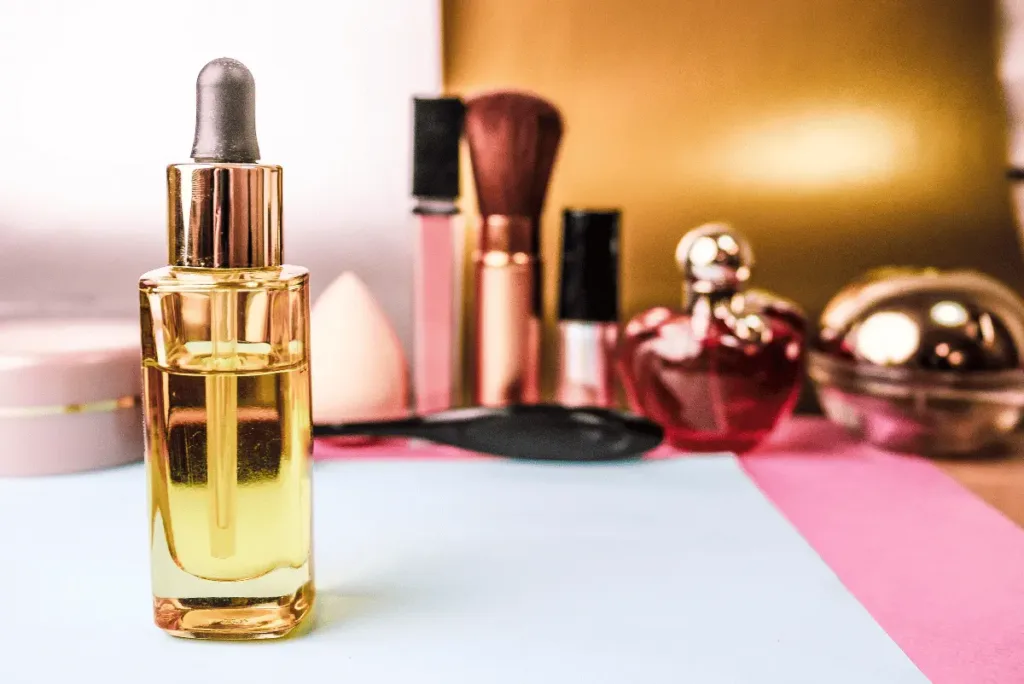Primer sets the background in which other makeup products are applied. It evens out the skin and creates a workable skin surface. While primer seems like an indispensable makeup product, is it truly necessary? Which is better, primer or no primer makeup?
The major difference between the two is that makeup with primer makes the skin smooth and evens the texture. Although primer performs a specific function in makeup application, its absence can not mar your makeup.
Your makeup will still come out amazing even when you leave out the primer. But the truth is, your makeup is better off with primer as a base.
In this blog post, I will be squashing all the doubts you have regarding wearing your makeup without primer and the importance of primer in makeup.
Is It Ok to Wear Makeup without Primer?
Yes, it is perfectly okay to wear makeup without using a primer. While makeup primer offers various benefits, it is not a mandatory step in the makeup routine. Many people choose to skip primer for various reasons, and makeup can still be applied and look great without it.
Is Primer Good for Your Skin?
Yes, makeup primer serves as a protective barrier between your skin and makeup, preventing makeup products from directly contacting and potentially clogging your pores.
However, as with any cosmetic product, individual reactions may vary, so endeavor to choose a primer suitable for your skin type and perform a patch test if you have sensitive skin.
Can You Wear Primer without Makeup?
Yes, you can wear primer without makeup. Makeup Primer can be used as a standalone skincare step to achieve a smoother and more refined complexion. When applied without makeup, primer can still provide several benefits for the skin.
Wearing primer alone can help control excess oil, extend the wear time of skincare products, and provide a lightweight and comfortable feel on the skin.
It’s a great option for those who prefer a natural or no-makeup look but still want to enhance their skin’s appearance and enjoy the smoothing effects of primer throughout the day.
10 Importance of Primer in Makeup
The importance of primer in makeup cannot be overstated, as it plays a crucial role in achieving a flawless and long-lasting look. Here are some key reasons why primer is essential in makeup application:
1. It creates smooth workable skin
Primer creates a smooth and even surface on the skin by filling in fine lines, wrinkles, and pores. This blurs imperfections and provides a seamless canvas for foundation and other makeup products.
2. It minimizes the pore
Certain primers have pore-minimizing properties, reducing the appearance of enlarged pores. This helps create a more refined and polished complexion.
3. It elongates makeup lifespan
Primer acts as a barrier between the skin and makeup, preventing natural oils and sweat from breaking down the products throughout the day. This extends the wear time of makeup, ensuring it stays fresh and vibrant for longer.
4. It enhances makeup adhesion
By providing a slightly tacky base, primer helps makeup products adhere better to the skin. This improves the overall coverage and ensures makeup stays in place without sliding or settling into fine lines.
5. It controls excessive oil on the skin
Some primers are formulated to control excess oil on the skin’s surface, making them ideal for individuals with oily or combination skin. They help maintain a matte finish and reduce shine throughout the day.
6. Promotes skin hydration
Certain primers contain moisturizing ingredients that provide an additional layer of hydration to the skin, preventing makeup from appearing dry or cakey.
7. Provides added sun protection
Some primers come with added sun protection (SPF), contributing to safeguarding the skin from harmful UV rays and sun damage.
8. Evens out skin tone
Primer can help neutralize redness or discoloration on the skin, creating a more even skin tone and reducing the need for heavy concealer application.
9. Eases the application of other products
Applying primer before makeup streamlines the application process. It helps foundation, concealer, and other products blend seamlessly, saving time and effort.
10. Makeup versatility
Using a primer allows for easier makeup blending and layering, giving you the freedom to experiment with various makeup styles and techniques.
Primer vs. No Primer: Pros and Cons
Using makeup primer is a personal choice, and both options come with their own set of pros and cons. Let’s explore the advantages and disadvantages of using primer versus skipping it:
- Gives smoother and even skin texture: Primer creates a smooth canvas by filling in fine lines and pores, resulting in a more refined complexion and a flawless base for makeup application.
- It reduces obvious pores: Certain primers can visibly reduce the appearance of pores, giving the skin a more polished and airbrushed look.
- Improves makeup longevity: Primer acts as a barrier between the skin’s natural oils and makeup products, enhancing the wear time of makeup and preventing it from fading or smudging throughout the day.
- It reduces excessive product application: Primer provides a slightly tacky surface for makeup to adhere to, leading to better coverage and reducing the need for excessive product application.
- Oil control: Some primers are formulated to control excess oil on the skin, making them beneficial for individuals with oily or combination skin, providing a more matte finish.
- Moisturizes: Certain primers contain moisturizing ingredients that provide an additional layer of hydration to the skin, helping prevent makeup from appearing dry or cakey.
- Protects skin from UV rays: Some primers come with added SPF, contributing to protecting the skin from harmful UV rays and sun damage.
Cons of using makeup primer
- Additional step and cost: Applying primer adds an extra step to your makeup routine, which may be time-consuming. Additionally, it involves an additional cost for purchasing the product.
- Skin sensitivity: Some individuals may be sensitive to certain primer ingredients, which can cause irritation or breakouts.
- Incompatibility with certain products: Some primers may not work well with specific foundation formulas or other makeup products, leading to a less desirable result.
Pros of skipping primer
- Simplified routine: Skipping primer streamlines your makeup routine, making it quicker and more straightforward.
- Lightweight Feel: Without primer, your makeup may feel lighter and more natural on the skin.
Cons of skipping primer:
- Less smooth surface: Without primer, makeup may not adhere as evenly, leading to a less smooth and refined skin texture.
- Reduced makeup longevity: Makeup without primer may not last as long, especially in humid or oily skin conditions.
- Limited pore minimization: The absence of primer may result in less visible pore minimization, especially if you have enlarged pores.
- Diminished oil control: For those with oily skin, skipping primer may lead to increased shine and oiliness throughout the day.
6 Best Substitutes for Primer
A substitute for primer can be using a makeup base that provides similar benefits to create a smooth canvas for makeup application. Some common substitutes for primer include:
1. Moisturizer
A hydrating moisturizer can serve as a substitute for primer, as it helps to moisturize and prepare the skin, creating a smoother texture for makeup.
2. Foundation
Certain foundation formulas, especially those marketed as “long-wear” or “matte,” can substitute primer due to their smooth and pore-blurring qualities.
3. Tinted moisturizer
Tinted moisturizers combine hydration and light coverage, providing a subtle base for makeup without the need for a separate primer.
4. Sunscreen
Some sunscreens with a matte or velvety finish can double as a primer by providing a smooth surface for makeup application.
5. Aloe vera gel
For those with sensitive or dry skin, aloe vera gel can be used as a lightweight substitute for primer to soothe and hydrate the skin.
6. Setting spray
While not a direct substitute, using a setting spray before makeup application can create a slightly tacky surface, helping makeup adhere better to the skin.
Frequently Asked Questions
Can I use moisturizer instead of primer?
Yes, you can use moisturizer instead of primer as a makeup base. While primer is specifically designed to create a smooth and even canvas for makeup application, moisturizer can also serve as a suitable alternative in certain situations.
Can I use sunscreen as a primer?
Yes, you can use sunscreen as a primer in some cases. Note not all sunscreens may work effectively as a primer. Some sunscreens may leave a greasy or sticky residue on the skin, which can interfere with makeup application.
Conclusion
I discussed the pros and cons of using primer versus skipping it, acknowledging that while primer offers numerous benefits, it is not a mandatory step in the makeup routine. Each individual’s preferences, skin type, and makeup goals significantly influence the decision to incorporate primer.
You can either opt for primer or explore alternative approaches, such as using moisturizer or other makeup bases; the key is to prioritize skincare and find what works best for each unique skin type and makeup style.







